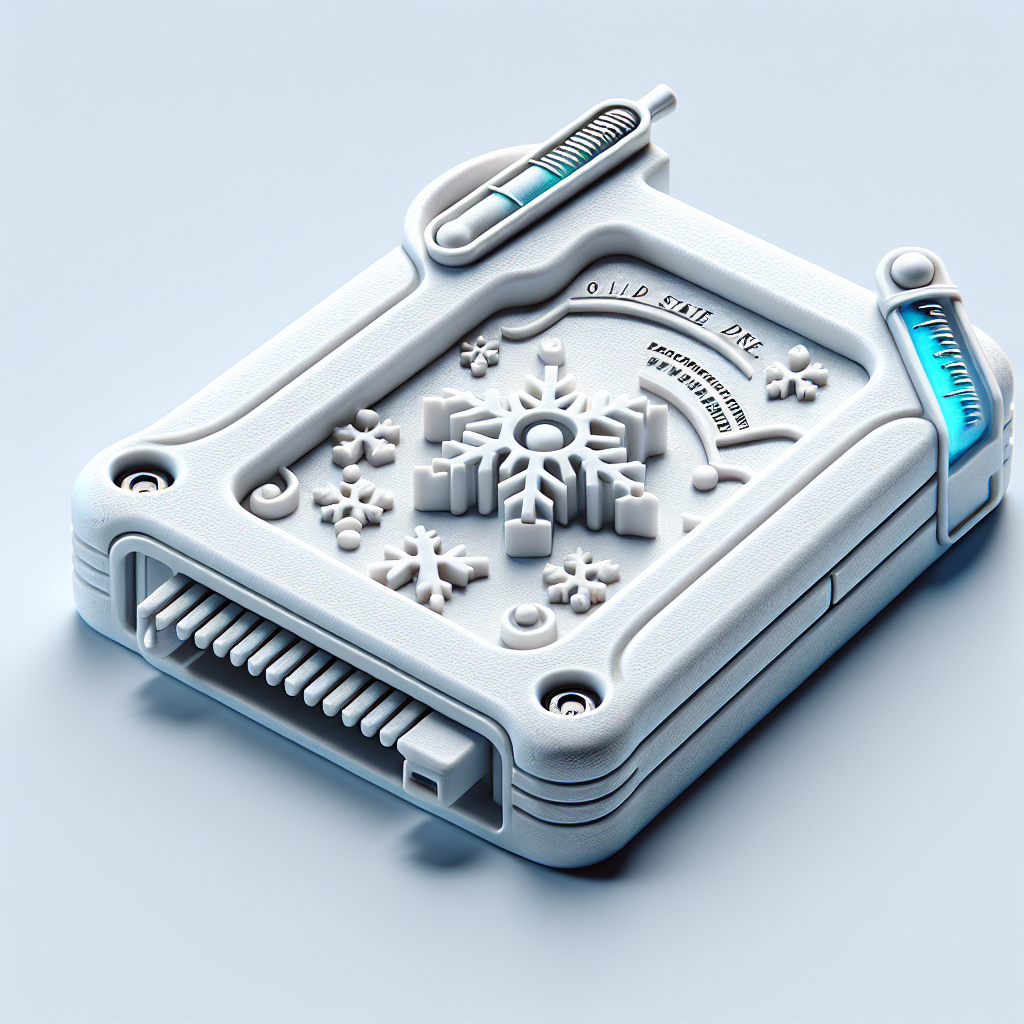Solid State Drives (SSDs) have revolutionized the way we store and access data, offering fast data transfer rates and enhanced reliability compared to traditional Hard Disk Drives (HDDs). However, with this advancement comes the challenge of managing heat generation, which can negatively impact performance and lifespan. This is where adaptive thermal protection comes into play.
Understanding Adaptive Thermal Protection
Adaptive thermal protection is a technology incorporated into some SSDs to manage and mitigate heat buildup during operation. As SSDs perform intensive tasks, they can generate significant heat, potentially leading to thermal throttling or even hardware failure. Adaptive thermal protection ensures that the SSD remains within a safe temperature range, optimizing performance and durability.
How Adaptive Thermal Protection Works
Adaptive thermal protection typically involves a combination of hardware and firmware mechanisms designed to monitor and adjust the SSD’s operating parameters:
- Temperature Sensors: Sensors continuously monitor the SSD’s temperature.
- Algorithmic Control: Firmware uses algorithms to predict and respond to temperature changes in real-time.
- Throttle Mechanisms: When temperatures approach critical levels, performance is throttled to reduce heat generation.
- Cooling Solutions: Some SSDs come with built-in heatsinks or other cooling solutions.
Components and Their Functions
| Component | Function |
|---|---|
| Temperature Sensors | Monitor real-time temperature data |
| Algorithmic Control | Predict and adjust performance |
| Throttle Mechanisms | Reduce performance to lower temperature |
| Cooling Solutions | Enhance heat dissipation |
Why Adaptive Thermal Protection is Needed
The main reasons SSDs feature adaptive thermal protection include:
- Preventing Overheating: Excessive heat can cause SSDs to malfunction or fail.
- Maintaining Performance: Adaptive thermal protection ensures consistent performance even under heavy loads.
- Extending Lifespan: Reducing thermal stress helps prolong the lifespan of SSD components.
The Impact of Heat on SSD Performance
Heat can affect SSD performance in several ways:
- Thermal Throttling: To prevent damage, SSDs may reduce their performance, slowing data access speeds.
- Data Integrity: High temperatures can lead to data corruption or loss.
- Component Wear: Prolonged exposure to heat accelerates wear and tear on internal components.
Performance and Lifespan Impacts
| Heat Impact | Consequence |
|---|---|
| Thermal Throttling | Reduced performance |
| Data Integrity Issues | Risk of data corruption |
| Component Wear | Shorter lifespan |
Types of SSDs with Adaptive Thermal Protection
Various SSD manufacturers implement adaptive thermal protection across different product lines:
- High-Performance SSDs: Designed for gaming and professional applications.
- Enterprise SSDs: Used in data centers and server environments.
- Consumer SSDs: Standard drives used in everyday computing.
Manufacturers and Models
| Manufacturer | Model |
|---|---|
| Samsung | 980 Pro |
| Western Digital | WD Black SN850 |
| Seagate | FireCuda 530 |
Benefits of Adaptive Thermal Protection
Adaptive thermal protection offers multiple benefits:
- Reliability: Ensures the SSD remains operational under various conditions.
- Performance Consistency: Prevents performance drops during intensive tasks.
- Longer Lifespan: Reduces wear and tear on internal components.
Balancing Performance and Longevity
Adaptive thermal protection strikes a balance between maintaining peak performance and ensuring the longevity of the SSD. By dynamically adjusting to the workload and environmental conditions, it helps users get the best out of their storage devices without compromising on either front.
Future of SSD Thermal Management
The future of SSD thermal management will likely see further advancements, including:
- Enhanced Cooling Solutions: More effective passive and active cooling systems.
- Advanced Firmware Algorithms: Improved predictive algorithms for better thermal management.
- Integration with System Cooling: Coordinating SSD cooling with overall system cooling solutions.
Upcoming Innovations
| Innovation | Potential Benefit |
|---|---|
| Enhanced Cooling Solutions | Better heat dissipation |
| Advanced Firmware Algorithms | More efficient thermal management |
| System Cooling Integration | Comprehensive thermal control |
In conclusion, adaptive thermal protection is a crucial feature in modern SSDs, enabling them to deliver high performance, reliability, and longevity. As technology advances, we can expect even more sophisticated thermal management solutions to further enhance the performance and durability of SSDs.

